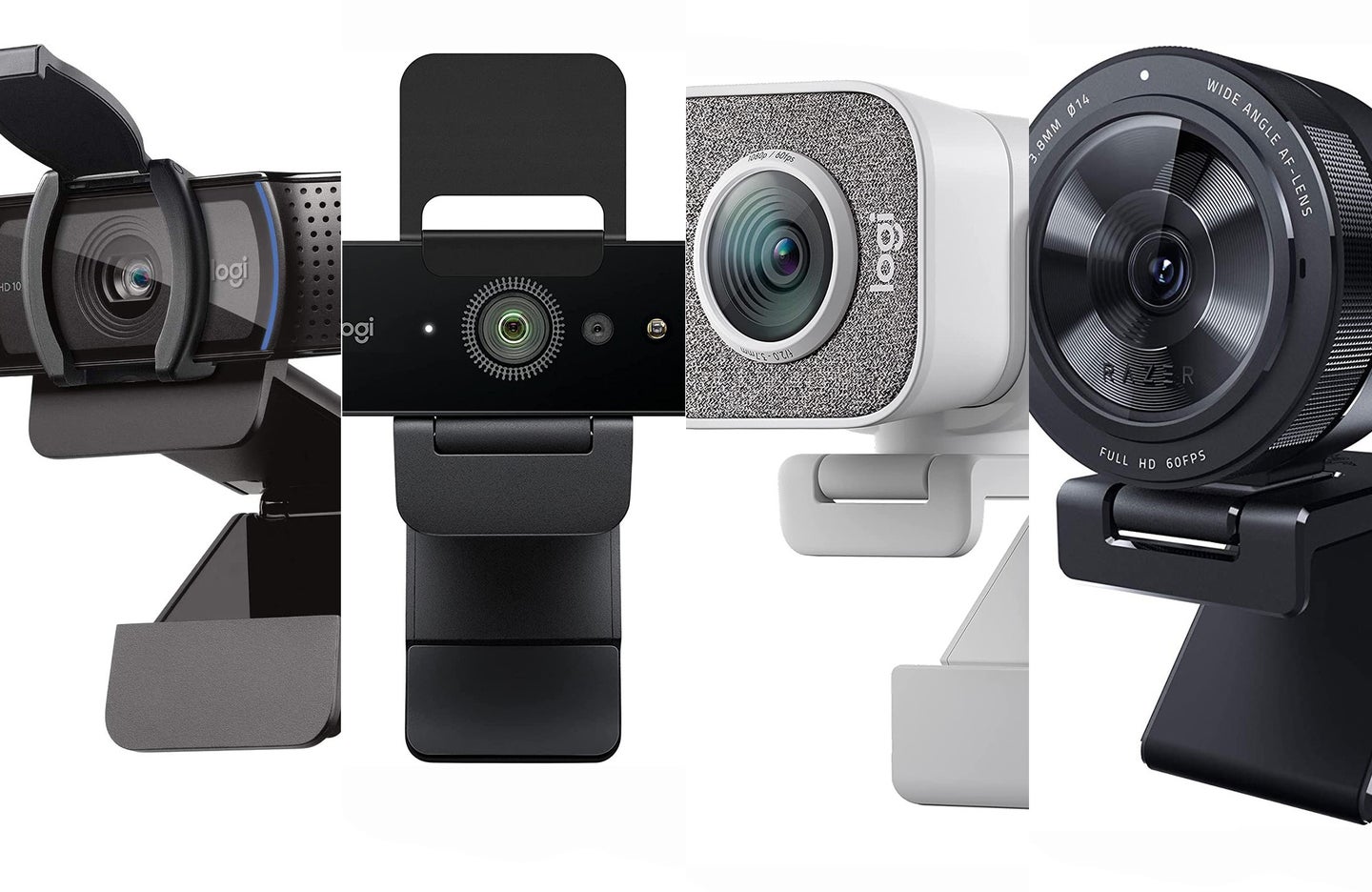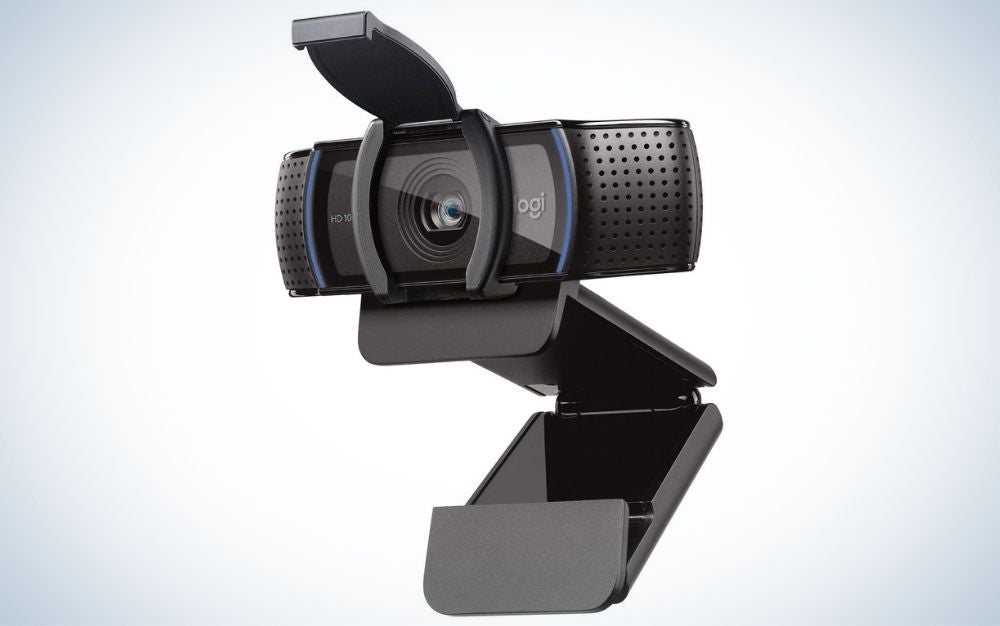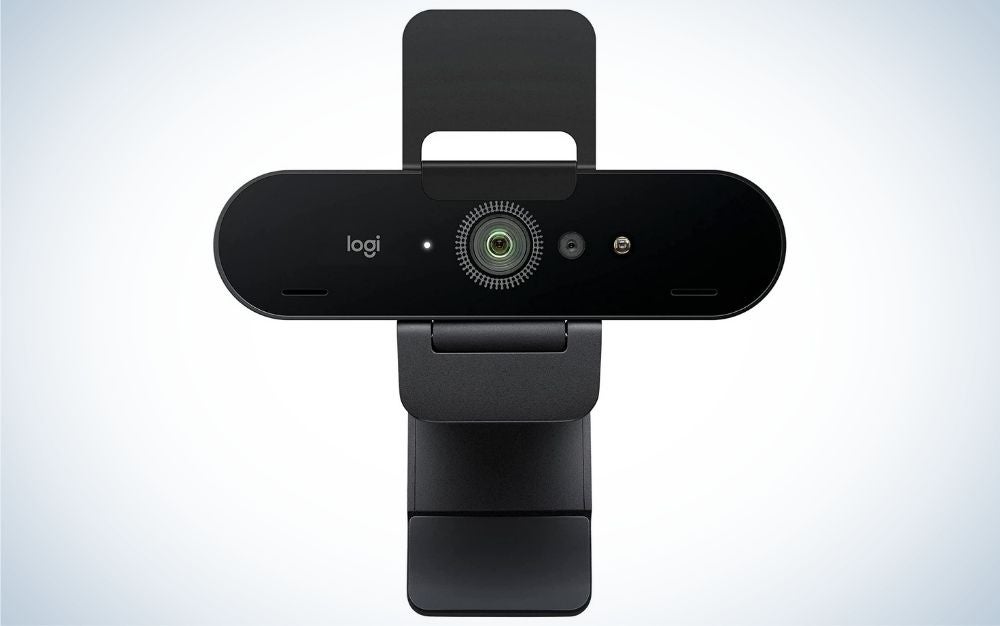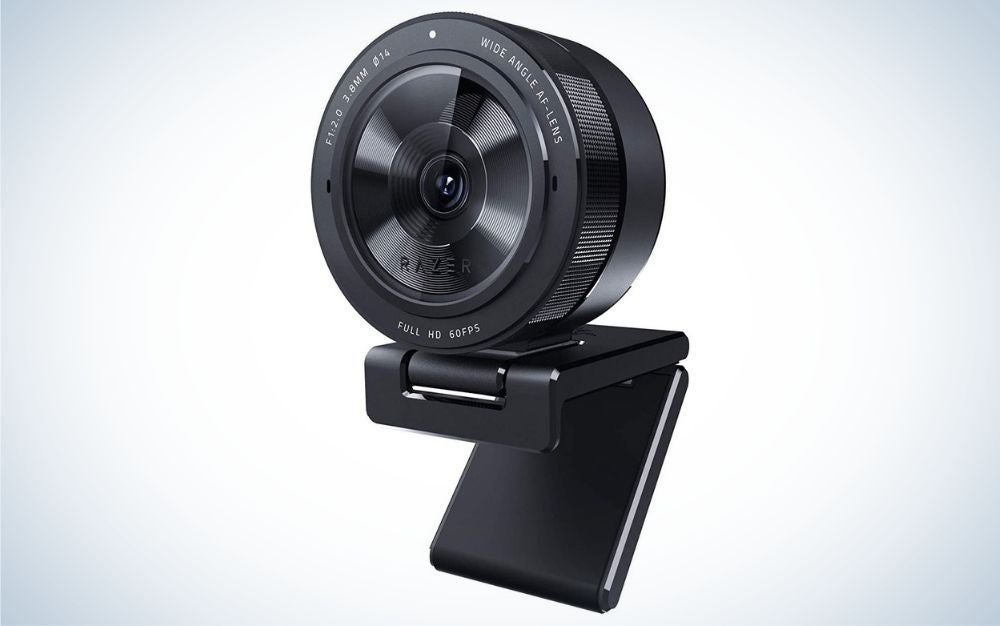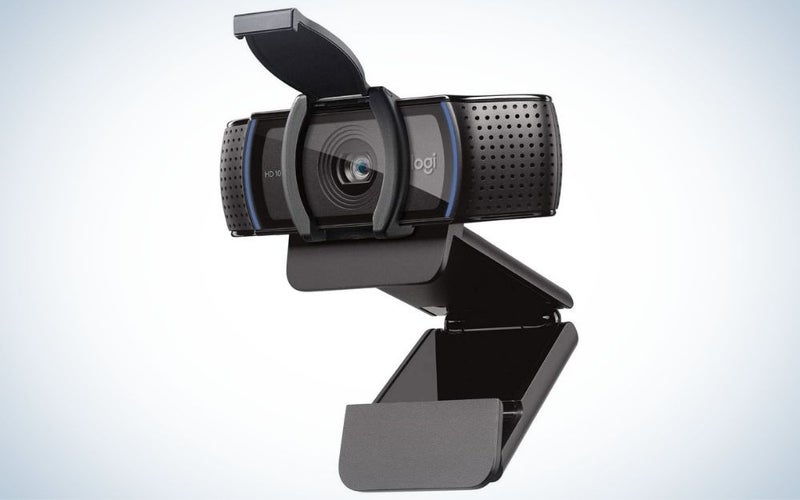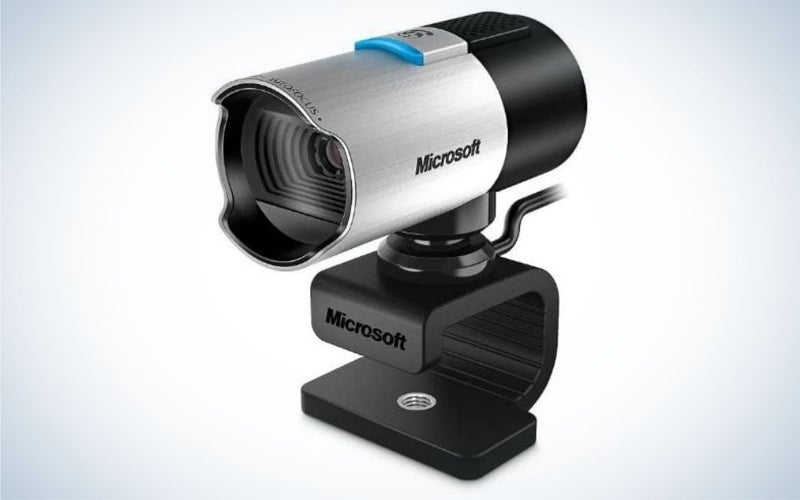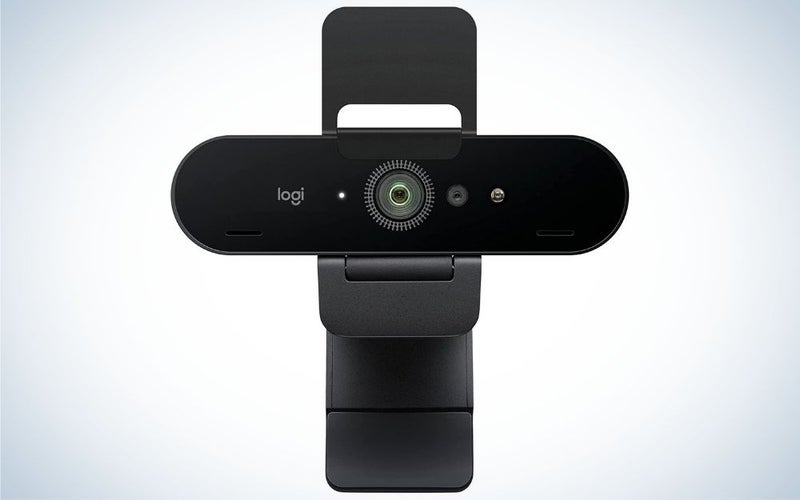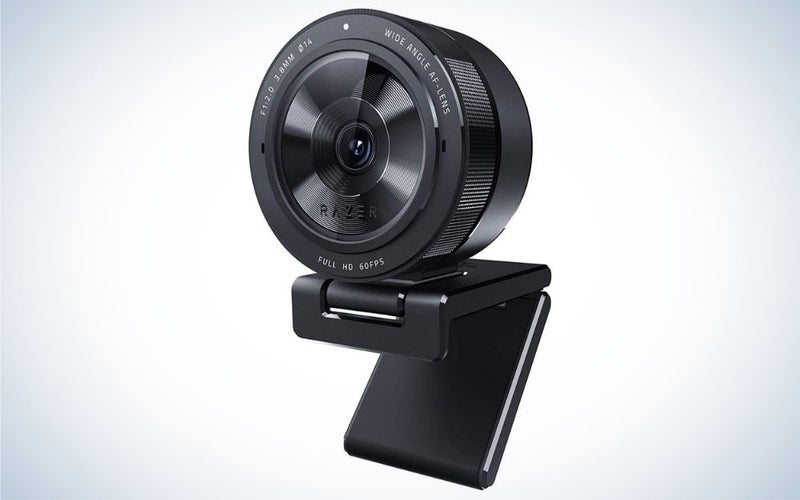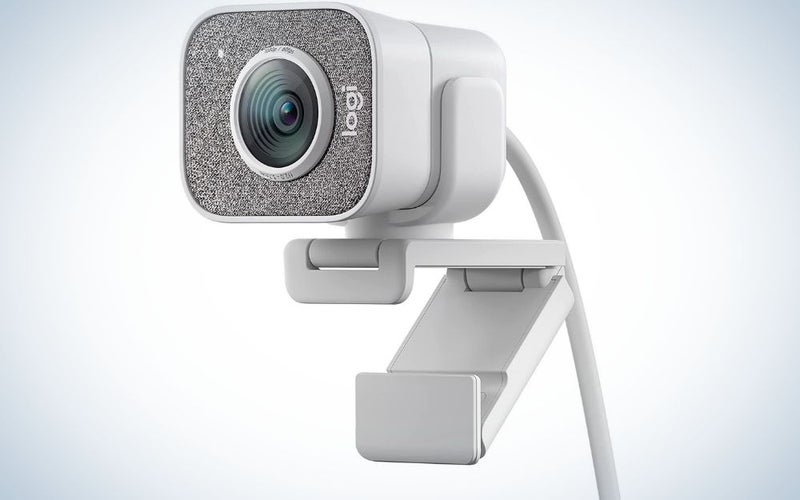We may earn revenue from the products available on this page and participate in affiliate programs. Learn more ›
Before 2020, most consumers weren’t all that interested in finding the best webcams. The general public used services like Zoom, Google Meet, and Skype relatively infrequently, and built-in webcams usually sufficed. As a result, at the start of 2020, most webcams still produced average video and audio quality with limited features. Since then, these computer cameras have become a lifeline to the outside world. Suddenly, it really mattered how good your webcam was.
While image quality is still the most crucial aspect of these devices, that doesn’t tell the whole story. Some offer clever features that you may not even have known you wanted. So if you are looking for one of the best webcams in 2023, here are our recommended models.
- Best overall: Logitech HD Pro c920S
- Best budget: Microsoft Q2F-00013 LifeCam Studio
- Best for business: Logitech Brio 4K
- Best for lowlight: Razer Kiyo Pro
- Best versatile: Logitech StreamCam
How we chose the best webcams
We selected a range of current models for our ratings of the best webcams at different price points. We also chose models that you can easily purchase on major online retail outlets. We then researched, selected, and tested models that included essential features and capabilities that met most users’ needs across a variety of use cases. The resulting list comes from a mixture of research and hands-on experience.
The best webcams: Reviews & Recommendations
Best overall: Logitech HD Pro c920S
Logitech
Why it made the cut: This webcam is our top choice because it’s easy to install, has excellent performance, and has useful features like a privacy shutter and 1080p quality.
Key features
- Resolution: 1080p
- Framerate: 30 fps
- Field of view: 78 degrees
- Dimensions: 1.7 x 3.7 x 2.8 inches
- Weight: 5.71 ounces
Pros
- Inexpensive
- Glass lens for better quality video
- Dual omnidirectional built-in mics
- Easy to use and set up
- Includes a removable privacy shutter
Cons
- Only 30 fps
- Not great in low light settings
There are a few crucial reasons we selected this Logitech model as the best webcam overall. For starters, it comes with a feature that allows you to stop taping up your laptop’s webcam for privacy concerns. The Logitech HD Pro c920S has a privacy shutter, which fits snugly over the lens and lets you cover it whenever not in use. Second, it’s easy to install and use.
The c920S is an excellent performer, allowing you to make and record video calls in full HD (1080p) so that the footage is sharp and clear. The lens has autofocus, so subjects stay in focus. Plus, its auto-white balance does a great job at correcting color casts. Logitech also equipped this webcam with stereo audio (with dual mics), so the audio sounds natural and clear. It’s not the fanciest webcam in the world, but it’s solid and reliable enough to suit the needs of most people.
Best budget: Microsoft Q2F-00013 LifeCam Studio
Microsoft
Why it made the cut: This inexpensive webcam still provides good video recording quality at 1080p and solid performance.
Key features
- Resolution: 1080p recording/720p for video chats
- Framerate: 30 fps
- Field of view: 75 degrees
- Dimensions: 4.48 x 2.36 x 1.77 inches
- Weight: 4.5 ounces
Pros
- Relatively inexpensive
- Easy to use
- Rotates 360 degrees to easily adjust the angle of the camera
Cons
- 1080p resolution is only for video recording, not calls
- Narrower field of view than most models
As with many bargain or budget devices, you’ll need to be willing to make a few compromises with this webcam. For instance, it comes with a 1080p resolution sensor and can record in 1080p. However, during video chats, the resolution drops to 720p. It also has a 75 degree field of view, which is just a touch narrower than most. Additionally, the lens itself is just plastic instead of glass, which makes it even more important to keep clean.
One nice feature is that you can rotate the webcam 360 degrees around. Microsoft also equipped the LifeCam Studio with a wideband microphone for very good audio quality. Of course, you won’t get every bell and whistle with this model, but overall, it does a good job when you need to hop on a conference call. Lastly, this Microsoft webcam is only compatible with Windows computers, so Apple users need to choose something else.
Best for business: Logitech Brio 4K
Logitech
Why it made the cut: If you’re looking for a higher resolution for clearer conference calls with your business partners or recording more professional content, this webcam can record and capture 4K resolution video.
Key features
- Resolution: 4K/1080p/720p
- Framerate: 30 fps (for 4K) and 60 fps (for 1080p)
- Field of view: Adjustable–65, 78 and 90 degrees
- Dimensions: 1 x 1 x 4 inches
- Weight: 2.22 oz
Pros
- Higher resolution (4K) than most in its class
- Very versatile
- Three field of view settings
- Two omni-directional mics
- Auto exposure technology for getting the correct exposure in video chats
Cons
- Expensive
This Logitech is pricey compared to most other best webcams. However, we think it’s worth the money, particularly if you’re looking for the best video conference camera with a high resolution or versatility.
The Logitech Brio 4K can capture video in 4K resolution, four times higher than what you’ll get with most models. In addition, you can step it down to record in 1080p or even 720p, allowing you to increase the framerate to 60 fps and 90 fps, respectively. You also get three field of view settings: 65, 78, and 90 degrees. These different FOV options allow you to limit or expand the space around you or your subject when you’re on a video chat.
Other impressive features include dual omni-directional mics for getting great audio. It also has smart security features, like the ability to sign-in securely to your computer with Windows Hello facial recognition. And there’s a privacy shade to cover and protect the lens.
Best for lowlight: Razer Kiyo Pro
Razer
Why it made the cut: This adjustable and versable webcam is ideal for low-light environments.
Key features
- Resolution: 1080p
- Framerate: 60 fps
- Field of view: 80, 90 and 103 degrees
- Dimensions: 2.71 x 2.71 x 1.91 inches
- Weight: 6.88 ounces
Pros
- Very versatile
- Three field of view settings
- High dynamic range (HDR) capabilities
- Both autofocus and manual focus settings
Cons
- Software could be easier to use
Lowlight or dim environments have always been a challenge for cameras, particularly those using inexpensive components like webcams. However, webcams like this one use smart or automated features to get the most out of the cheaper components. For example, the Razer Kiyo Pro has HDR settings, allowing streaming video to maintain vibrant colors and even exposure in lower-light or high contrast environments.
Like the Logitech Brio, the Kiyo Pro offers three FOV settings: 80, 90, and 103 degrees. It also comes with a lens that has an f/2 aperture, which allows more light into the lens, helping even more with darker lighting conditions. And it can record 1080p video at 60 fps for more fluid and smoother-looking video.
Best versatile: Logitech StreamCam
Logitech
Why it made the cut: The StreamCam is a well-rounded and versatile webcam that adjusts quickly to changing lighting conditions. The 1080p video at 60 fps will appeal to streamers, content creators, or anyone looking for smooth, high-quality video.
Key features
- Resolution: 1080p
- Framerate: 60 fps
- Field of view: 78 degrees
- Dimensions: 2.29 x 1.9 x 2.38 inches
- Weight: 7.83 ounces
Pros
- Versatile, particularly when recording in changing lighting scenarios
- Good camera build
- Offers 60 fps, for smoother-looking footage
- Comes with several smart features, including auto-framing and auto-exposure
Cons
- A bit pricey
- Software can be a little confusing
Although it’s a little more expensive than most webcams, there’s a lot to like about the Logitech StreamCam, particularly if you value versatility. For starters, it’s a slightly larger camera that allows for a better quality lens. That’s something that helps with various settings, from image quality to its ability to adjust to changes in lighting quickly. Overall, it’s a webcam that responds very quickly to the environment.
The StreamCam can capture content at 1080p at the higher framerate of 60 fps, which provides smoother-looking video. And the webcam also has an auto-framing feature and intelligent exposure to help keep your video looking great. In addition, the built-in mic is dual omnidirectional and has a noise reduction filter to help with any background noise.
What to consider when buying the best webcams
If you are in the market for a new model, here are some features, capabilities, technical specs, and technologies you’ll want to consider when you buy a new webcam:
Image Quality
Two important specs control image quality: Resolution and the quality of the lens. Resolution refers to the total number of pixels the webcam captures in a frame. The minimum resolution you’ll want to accept these days is 720p. However, webcams with more resolution can provide even more detail up to fancy 4K if your connection and computer can handle it.
The quality of the lens also determines how sharp the image will be. A glass lens will offer better quality than plastic alternatives, though they will be more expensive. Also, look for a lens with a wide aperture, such as f/2.8 or f/2, which allows more light into the camera.
Field of View
Field of view (FOV) provides you with a measurement of how wide or narrow the webcam’s lens is. It will control how much of your surroundings the people you are chatting with will see. Most webcams have a FOV ranging between 65 and 90 degrees, with 65 degrees being narrower and 90 degrees being a wider angle. The majority have a FOV of 78 degrees, which shows the main subject, you, and some of the surrounding space. If you don’t want your surroundings displayed as much, opt for a narrower FOV.
Frame rate
The frame rate will also play a role in video quality. Some models allow you to capture video at a higher frame rate, such as 60 frames per second, resulting in smoother-looking footage. Avoid going lower than 30 fps if the video quality is important to you.
Audio quality
Be sure to consider what kind of audio system your webcam has, including the quality of the microphones and other audio features. Microphone features like dual microphones and omnidirectional mics may also be important if you want solid audio quality. If you need to record professional-level audio, however, you should likely invest in a standalone mic.
Ease of use
By and large, most webcams are easy to set up and use. However, do some research before purchasing to see if the settings and menu systems make sense to you. Also, make sure it’s compatible with your operating system. For example, Mac computers don’t offer controls in the Preference section to control your webcam. So, those controls need to be included in the webcam or the app that controls it.
FAQs
Q: Where do I mount a webcam?
Where you mount or position your webcam depends on how you’re using it and what type of laptop or desktop you’re using it. Most users clamp it to the top of a computer monitor or laptop display, which results in your video chat screen falling just below the camera lens. This positioning makes for a great way to engage in a conversation with someone over a video chat since it will read more like you are talking to someone face to face instead of looking off to the side.
However, it’s not the only place to set up and position a webcam. For example, if you work at a desk, you can also have the camera rest on a shelf or the desk itself. You can also use a tripod if you don’t want the webcam to be attached to your computer.
Q: Can I use my phone as a webcam?
Yes. Both iOS and Android mobile apps are available to turn your iPhone or Android-type phone into a webcam via a wired or wireless connection. If you’re considering using your phone, though, you might want to place it on a tripod so that you don’t have to hold it or lean it on something when you use it.
Q: Can I use my digital camera as a webcam?
In the first half of 2020, many digital camera makers, including Sony, Canon, Nikon, and others, made firmware updates that allowed standalone digital cameras to connect to a laptop (via a USB or a USB-C connection). What’s nice about using your digital camera as a webcam is that, by and large, the lens that comes with a digital camera, even most point-and-shoots, will have superior quality optics that are far better than what you’ll get with a webcam.
A final word on buying the best webcams
While it’s always a good idea to closely examine the technical specifications and features available on a new webcam, you’ll also want to be aware of what features are available for you to use when you’re actively in a video chat or web conference. In other words, you might have a webcam that has high-quality resolution and high frame rate settings. But that might be more than what the major online video conferencing services even support.
For instance, here are a few of the top resolution settings for some popular video conference services:
- Zoom: 1080p
- Microsoft Teams: 1080p
- Google Meet: 720p
As you can see, none of them include 4K or 8K video resolution, meaning you won’t be using the full capabilities of your webcam if it has more than that. If all you are doing with your webcam is video chats and conference calls, you could save some money and go with a lower resolution.
